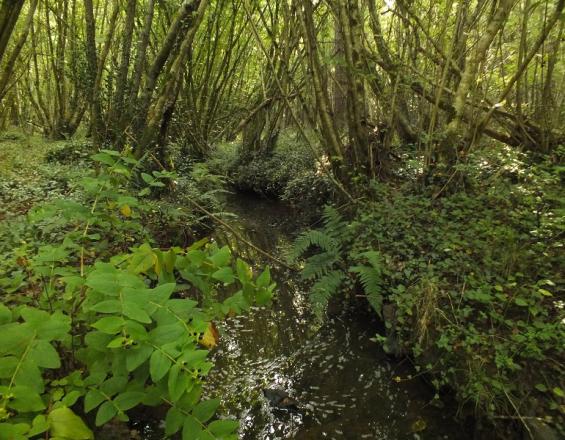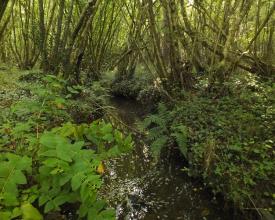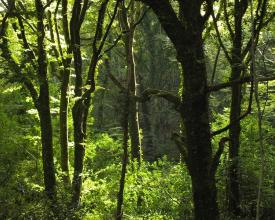

The Bois du Loc’h is an integral biological reserve (RBI), the only status specifically designed to ensure the free evolution of a representative sample of forest habitats present in France, and enhance the network thus constituted. With the already important protection ensured by the control land (forest of the State), and the plan of sustainable management of the forest among which the Bois du Loc’h, the RBI adds a guarantee of durability of the absence of holdings and a specific management plan.
This management plan includes arrangements common to all RBIs: standardized monitoring protocols, principles for securing marked trails, ungulate regulation by hunting in the absence of natural predators, and elimination of exotic species. These principles, adapted to the more or less anthropized environment of most of the forests of a country like France, were compatible with the recognition in category IUCN Ia, with regards of the purpose of the RBI.
Impacts
The main positive impacts of the RBI concerns the durability of the free evolution of the forest, the preservation and the development of a capital of naturalness and compartments of biodiversity less present in the exploited forests: saproxylic insects, cavicultural birds and chiroptera, etc. As such, the RBI du Bois du Loc'h makes a special contribution to preserving the biodiversity of Brittany's forests, complementary to measures taken in the day-to-day management of production forests (conservation of dead trees, islets of old trees, etc.).
The RBI du Bois du Loch does not have (at least currently) a positive economic impact. An objective of the reserve (after the primary one: preservation of natural heritage), is the discovery by the public however, the reserve does not have a real touristic purpose. On the other hand, any creation of RBI is accompanied by a negative economic impact linked to the stop of the farms, modest in the case of the Bois du Loc'h but important in other cases.
As for social positive impacts, they are still modest (the stake of the creation of an RBI is often first of all its acceptance by various interested parties) but potentially more important: the sensitization to the "natural" forest, as well as 'the forest managed and operated sustainably, is indeed a beautiful challenge.


